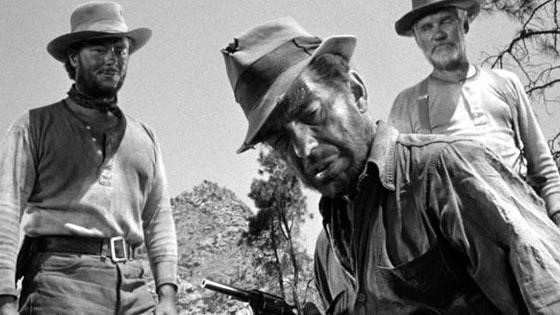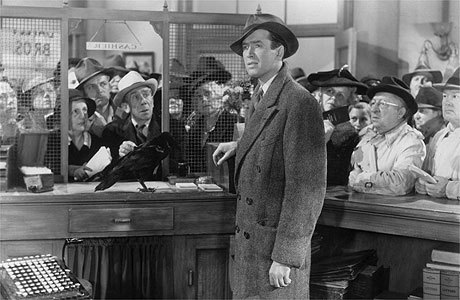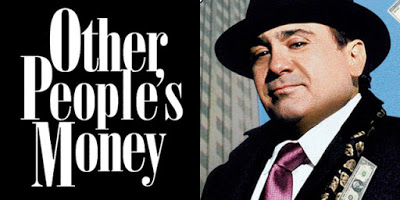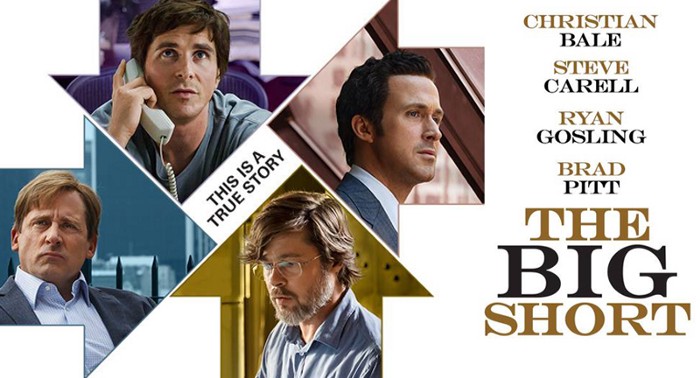Economics through Film
Syllabus
About the Course
Economics is a way of looking at the world -- a lens, you might say. Economists see economic phenomena, and economic lessons, everywhere. So it shouldn't be surprising that motion pictures are full of economic phenomena and economic ideas. This course will use movies as a way to introduce you to some of the basic concepts in economics and to evaluate critically how those concepts are embodied in specific movies. By the end of the course, you should have a good sense of what economics is and how economists think about the world. There may even be lessons for your own life along the way.
After you've spent some time in the course, you may decide you really like Economics and want to take more of it -- maybe even to major or minor in Economics. Students usually start out by taking Economics 1201 (microeconomics) and 1202 (macroeconomics), which are the prerequisites for upper-division courses in the major and also fulfill requirements in the Business School and elsewhere. Alternatively, you can take Econ 1200, which is a four-credit course that covers much the same material as 1201 and 1202 (both macro and micro) in a single semester. Econ 1200 fulfills all the same requirements as taking both ECON 1201 and 1202.
For more information about Economics as major (or minor), click here.
Course Format and Requirements
We will watch 12 movies over the course of the semester. Each movie will raise a set of specific economic issues and illustrate specific economic concepts.
We will watch all the movies in class, but you are of course free to rewatch the movies on your own (and at your own expense) on Netflix, Amazon, or other platforms. (At the moment, all of these movies are available to watch or rent on Amazon Prime. You can also check your local library.) We will discuss each movie at the beginning of the class after the class during which the movie is shown. Before each discussion, you will watch the appropriate material on the syllabus (videos and readings) and submit a reaction paper of two or three pages (double spaced) in response to a prompt about the movie. This is a course about how movies use and illustrate economic ideas, not a course about literary criticism or cinema as an art form; but you are welcome to think about the literary and cultural aspects of the movies in your papers, at least so long as you also talk about economics. This is not a W course, so you will not be graded on the writing per se -- but part of what you will be graded on is the argument you make and how well you make it. You might want to look at my Notes on Writing and the resources there.
Each reaction paper will be worth 7 (seven) per cent of your grade. You will turn in a hard copy of your reaction paper before the start of each class (except, of course, the very first one). I will drop the lowest grade on the papers, so you get one freebie. (Use it wisely.) So that's 11 papers, worth seven per cent each, for a total of 77 per cent. The remaining 23 per cent of your grade will come from the final exam. It will be a two-hour open-notes exam during our officially scheduled final-exam time. The final will likely be a choice of short essays that ask you to integrate material from the course and perhaps to compare ideas across movies. Understand that the essays on the final exam will also test your knowledge of the economic concepts we talk about in class, not just on the content of the movies. (I will provide more detail about the final as it approaches.)
So the drill for every class (except the first and last classes) will be:
- Hand in your reaction paper on last week's movie.
- Discuss last week's movie.
- Watch a new movie.
I expect active class participation, and I reserve the right to deduct up to 5 (five) points form your final grade for lack of participation.
There are no required materials for this course, apart from any movies you want to rent or buy on your own. For each movie the syllabus links to short videos that go over important concepts and substitute for a textbook. There are also readings of various kinds, from articles in the New York Times to professional journal articles in economics to original writings by major historical figures, including Adam Smith, Louis Brandeis, John Maynard Keynes, and Thomas Schelling. I don't expect you to master the more difficult readings, and you won't be tested on them. But I do expect you to look at them and grapple with them.
Course Grading Summary:
Eleven best reaction papers 77%
Final Exam 23%
|
Grade |
Letter Grade |
GPA |
|
93-100 |
A |
4.0 |
|
90-92 |
A- |
3.7 |
|
87-89 |
B+ |
3.3 |
|
83-86 |
B |
3.0 |
|
80-82 |
B- |
2.7 |
|
77-79 |
C+ |
2.3 |
|
73-76 |
C |
2.0 |
|
70-72 |
C- |
1.7 |
|
67-69 |
D+ |
1.3 |
|
63-66 |
D |
1.0 |
|
60-62 |
D- |
0.7 |
|
<60 |
F |
0.0 |
Calendar of Movies
August 26
Introduction to the course and to economics.

Screening: The Treasure of the Sierra Madre (1948).
Concepts:
- Rationality versus "greed."
- Institutions: trust.
- Institutions: property rights.
- Institutions: violence as dispute resolution.
- Productive vs. unproductive rent seeking.
Materials:
- Video: The Importance of Institutions.
- Video: The Economics of the Treasure of the Sierra Madre.
- Robert Whaples, "Ten Economic Lessons from the Treasure of the Sierra Madre," The Independent Review 18(3): 441-452 (Winter 2014).
- Andrea G. McDowell, "From Commons to Claims: Property Rights in the California Gold Rush," Yale Journal of Law & Humanities 14(1): 1-72 (2002).
September 9
Discuss The Treasure of the Sierra Madre (1948).

Screening: Dirty Pretty Things (2002).
Concepts:
- Gains from trade.
- Opportunity cost.
- Institutions: Illegal markets.
- "Repugnant" transactions.
- Economics of Immigration.
Materials:
- Video: The Big Ideas of Trade.
- Video: What Is Opportunity Cost?
- Video: Gains from trade.
- Video: Should You Be Allowed to Buy or Sell Your Kidney?
- Stephen J. Dubner and Steven D. Levitt, "Flesh Trade: Weighing the Repugnance Factor," The New York Times Magazine, July 9, 2006.
- Philip J. Cook and Kimberly D. Krawiec, “If We Pay Football Players, Why Not Kidney Donors?” Regulation, Spring 2018, pp. 12-17.
September 16
Discuss Dirty Pretty Things (2002).

Screening: The Hudsucker Proxy (1994).
Concepts:
- Supply and demand.
- Demand shifters: information and tastes.
- Entrepreneurship and innovation -- 1950s corporate edition.
Materials:
- Video: The Demand Curve
- Video: Demand, Part 1
- Video: Demand, Part 2
- Video: Demand Curve Shifts
- Video: The Economics of the Hudsucker Proxy.
- Douglas Martin, "Richard Knerr, 82, Craze Creator, Dies," The New York Times, January 18, 2008.
September 23
Discuss The Hudsucker Proxy (1994).

Screening: The Founder (2016).
Concepts:
- Entrepreneurship.
- Innovation: the reverse Schumpeterian hypothesis.
- Costs and production technology.
- The division of labor.
Materials:
- Video: Burgers and the Division of Labor
- Willy Staley, "22 Hours in Balthazar," The New York Times Magazine, October 17, 2013.
- Adam Smith, The Wealth of Nations (1776), Book I, Chapters I-III.
- Axel Leijonhufvud, "Capitalism and the Factory System," in R. N. Langlois, ed., Economic as a Process: Essays in the New Institutional Economics. New York: Cambridge University Press, 1986.
September 30
Discuss The Founder (1994).

Screening: Moneyball (2011).
Concepts:
- Competition.
- Profit maximization.
- Marginal product of labor.
- Measurement costs.
Materials:
- Video: The Marginal Product of Labor.
- Video: The labor market.
- J.C. Bradbury, "A Sports Economist’s Thoughts on Moneyball," Freakonomics Blog, September 26, 2011.
October 7
Discuss
Moneyball (2011).

Screening: 42 (2013).
Concepts:
- Markets and discrimination.
Materials:
- Video: The Marginal Product of Labor.
- Video: The labor market. (View from 15:00.)
- Kevin J. Murphy, "How Gary Becker Saw the Scourge of Discrimination," Chicago Booth Review, June 15, 2015.
- Christopher J. Coyne, Justin P. Isaacs, and Jeremy T. Schwartz, "Entrepreneurship and the Taste for Discrimination," Journal of Evolutionary Economics 20: 609–627 (2010).
October 14
Discuss 42 (2013).

Screening: Dr. Strangelove (1964).
Concepts:
- Game Theory.
- Credible threats and self-binding.
Materials:
- Video: Game Theory.
- Video: Making Threats Credible.
- William Grimes, "Thomas C. Schelling, Master Theorist of Nuclear Strategy, Dies at 95," The New York Times, December 13, 2016.
- Thomas C. Schelling, The Strategy of Conflict. Cambridge: Harvard University Press, 1960.
- Roger B. Myerson, "Learning from Schelling's Strategy of Conflict," Journal of Economic Literature 47(4): 1109-125 (2009).
October 21
Discuss Dr. Strangelove (1964).

Screening: The Wizard of Oz (1939).
Concepts:
- What is money?
- The quantity theory of money.
- Inflation, deflation, and hyperinflation.
- The gold standard.
Materials:
- Video: What Is Money?
- Video: Quantity Theory of Money
- Video: Causes of Inflation
- Video: Inflation, Deflation, Hyperinflation
- Hugh Rockoff, "The 'Wizard of Oz' as a Monetary Allegory," The Journal of Political Economy 98(4): 739-760 (August 1990).
- "U.S. Economy Grinds to Halt as Nation Realizes Money Just a Symbolic, Mutually Shared Illusion," The Onion, February 16, 2010.
- Amy B Wang, "'They’ll Kill for It': Ramen Has Become the Black-market Currency in American Prisons," The Washington Post, August 23, 2016.
October 28
Discuss The Wizard of Oz (1939).

Screening: It's a Wonderful Life (1946).
Concepts:
- Financial intermediation.
- Fractional-reserve banking.
- Trust and expectations.
- The Great Depression.
Materials:
- Video: What Do Banks Do?
- Video: Fractional-Reserve Banking
- Video: Four Reasons Financial Intermediaries Fail
- Video: The Great Depression
- Video: The Economics of It's a Wonderful Life.
- Sebastián Fleitas, Price Fishback, and Kenneth Snowden, "Forbearance by Contract: How Building and Loans Mitigated the Mortgage Crisis of the 1930s," Working Paper 21786, National Bureau of Economic Research (December 2015). This is a wonky but not-too-technical discussion of the kind of institution in the movie -- a Building and Loan, not an ordinary commercial bank.
November 4
Discuss It's a Wonderful Life (1946).

Screening: Other People's Money (1991).
Concepts:
- Debt (bonds and loans) versus equity (stocks).
- Corporate governance.
- The market for corporate control.
Materials:
- Video: Intro to Stock Markets
- Video: Financial Markets.
- Henry Hansmann, "Ownership of the Firm," Journal of Law, Economics, and Organization 4(2): 267-304 (Fall 1988).
- Louis D. Brandeis, Other People's Money. New York: Frederick A. Stokes, 1914.
- Michael C. Jensen, "Takeovers: Folklore and Science," Harvard Business Review, November-December, 1984.
November 11
Discuss Other People's Money (1991).

Screening: The Big Short (2015).
Concepts:
- Financial markets and securities.
- Bubbles vs. market fundamentals.
- Short selling.
- 2008 financial crisis.
Materials:
- Video: Speculation
- Video: What Is Short selling?
- Video: The Great Recession.
- Video: Free Investment advice
- Video: Raghuram Rajan on the causes of the financial crisis.
November 18
Discuss The Big Short (2015).

Screening: Wall-E (2015).
Part I: The environment.
Concepts:
- Externalities.
- The Tragedy of the Commons.
- Institutions and environmental protection.
Materials:
- Video: The Tragedy of the Commons
- Video: Externalities, Incentives, and Institutions.
- Video: Public Goods and Common Resources.
- Video: The Economics of Wall-E.
- Jake Halpern, "The Big Business of Scavenging in Postindustrial America," The New York Times Magazine, August 21, 2019.
- Antón Chamberlin and Walter E. Block, "Review: Wall-E," Cosmos + Taxis 6(6+7): 68-72 (2019).
- Steven Pinker, Enlightenment Now: the Case for Reason, Science, Humanism, and Progress. New York: Penguin, 2018, Chapter 10: the Environment.
- Economists' Statement on Carbon Dividends.
- David Leonhardt, "The Problem With Putting a Price on the End of the World," The New York Times Magazine, April 9, 2019.
Part II: Economic growth and automation.
Concepts:
- Economic Growth.
- Automation and technological unemployment.
Materials:
- Video: The Hockey Stick of Human Prosperity.
- Video: Economic Growth
- Video: "Farewell, Etaoin Shrdlu."
- Video: Will Machines Take Our Jobs?
- John Maynard Keynes, “Economic Possibilities for our Grandchildren (1930),” in Essays in Persuasion. New York: Harcourt Brace, 1932, pp. 358-373 .
- The Cost Disease of the Service Sector (from Dietrich Vollrath, Fully Grown: Why a Stagnant Economy Is a Sign of Success, The University of Chicago Press, 2020, Chapter 8).
December 2
Discuss Wall-E (2015).
Summary and overview of what we've learned.
Help and Resources
My office hours are Mondays 12:30 to 2:00 and Wednesdays 2:00 to 4:00 or by appointment. I am also around other times, and I am happy to arrange meetings in Webex. Come talk to me if you have any problems or questions about the class. Also feel free to come talk to me about other things, including economics or academics generally. Room 304 Oak Hall
The Economics Department offers free one-on-one tutoring for all student in principles of economics classes. If you are struggling with any of the material in the course, there is no excuse not to meet with a tutor to go over concepts. When meeting with a tutor, it is always best to come prepared with questions (from the chapters or exams).
For support for HuskyCT: Digital Learning Center, Level One of Homer Babbidge Library.
Phone: (860) 486-1187
Website: http://dlc.uconn.edu
The Center for Students with Disabilities (CSD) at UConn provides accommodations and services for qualified students with disabilities. If you have a documented disability for which you wish to request academic accommodations and have not contacted the CSD, please do so as soon as possible. The CSD is located in Wilbur Cross, Room 204 and can be reached at (860) 486-2020 or at csd@uconn.edu. Detailed information regarding the accommodations process is also available on their website at www.csd.uconn.edu.
Student Responsibilities and Resources |
As a member of the University of Connecticut student community, you are held to certain standards and academic policies. In addition, there are numerous resources available to help you succeed in your academic work. This section provides a brief overview to important standards, policies and resources.
Student Code
You are responsible for acting in accordance with the University of Connecticut's Student Code Review and become familiar with these expectations. In particular, make sure you have read the section that applies to you on Academic Integrity:
- Academic Integrity in Undergraduate Education and Research
- Academic Integrity in Graduate Education and Research
Cheating and plagiarism are taken very seriously at the University of Connecticut. As a student, it is your responsibility to avoid plagiarism. If you need more information about the subject of plagiarism, use the following resources:
- University of Connecticut Libraries’ Student Instruction (includes research, citing and writing resources)
Copyright
Copyrighted materials within the course are only for the use of students enrolled in the course for purposes associated with this course and may not be retained or further disseminated.
Netiquette and Communication
At all times, course communication with fellow students and the instructor are to be professional and courteous. It is expected that you proofread all your written communication, including discussion posts, assignment submissions, and mail messages. If you are new to online learning or need a netiquette refresher, please look at this guide titled, The Core Rules of Netiquette.
Adding or Dropping a Course
You must officially drop a course to avoid receiving an "F" on your permanent transcript. Simply discontinuing class or informing the instructor you want to drop does not constitute an official drop of the course. For more information, refer to the Undergraduate Catalog. Matriculated students should add or drop a course through the Student Administration System.
Academic Calendar
The University's Academic Calendar contains important semester dates.
Academic Support Resources
Technology and Academic Help provides a guide to technical and academic assistance.
Policy against Discrimination, Harassment and Inappropriate Romantic Relationships
The University is committed to maintaining an environment free of discrimination or discriminatory harassment directed toward any person or group within its community – students, employees, or visitors. Academic and professional excellence can flourish only when each member of our community is assured an atmosphere of mutual respect. All members of the University community are responsible for the maintenance of an academic and work environment in which people are free to learn and work without fear of discrimination or discriminatory harassment. In addition, inappropriate Romantic relationships can undermine the University’s mission when those in positions of authority abuse or appear to abuse their authority. To that end, and in accordance with federal and state law, the University prohibits discrimination and discriminatory harassment, as well as inappropriate Romantic relationships, and such behavior will be met with appropriate disciplinary action, up to and including dismissal from the University. Refer to the Policy against Discrimination, Harassment and Inappropriate Romantic Relationships for more information.
Policy Against Discrimination, Harassment and Related Interpersonal Violence
The University is committed to maintaining an environment free of discrimination or discriminatory harassment directed toward any person or group within its community – students, employees, or visitors. Academic and professional excellence can flourish only when each member of our community is assured an atmosphere of mutual respect. All members of the University community are responsible for the maintenance of an academic and work environment in which people are free to learn and work without fear of discrimination or discriminatory harassment. In addition, inappropriate amorous relationships can undermine the University’s mission when those in positions of authority abuse or appear to abuse their authority. To that end, and in accordance with federal and state law, the University prohibits discrimination and discriminatory harassment, as well as inappropriate amorous relationships, and such behavior will be met with appropriate disciplinary action, up to and including dismissal from the University. Additionally, to protect the campus community, all non-confidential University employees (including faculty) are required to report sexual assaults, intimate partner violence, and/or stalking involving a student that they witness or are told about to the Office of Institutional Equity. The University takes all reports with the utmost seriousness. Please be aware that while the information you provide will remain private, it will not be confidential and will be shared with University officials who can help.
Statement on Absences from Class Because of Religious Observances and Extra-Curricular Activities
Faculty and instructors are strongly encouraged to make reasonable accommodations in response to student requests to complete work missed by absence resulting from religious observances or participation in extra-curricular activities that enrich their experience, support their scholarly development, and benefit the university community. Examples include participation in scholarly presentations, performing arts, and intercollegiate sports, when the participation is at the request of, or coordinated by, a University official. Such accommodations should be made in ways that do not dilute or preclude the requirements or learning outcomes for the course. Students anticipating such a conflict should inform their instructor in writing within the first three weeks of the semester, and prior to the anticipated absence, and should take the initiative to work out with the instructor a schedule for making up missed work. For conflicts with final examinations, students should contact the Office of the Dean of Students.



